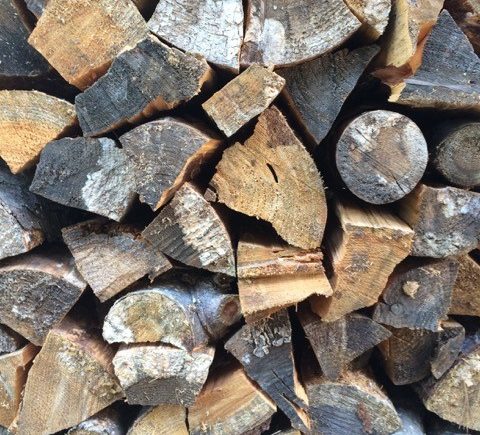The Alternative Energy Portfolio Standard (APS) is a state program aimed at providing incentives for residents, businesses and institutions to switch their heating and cooling systems from non-renewable fossil fuels (oil, gas, coal) to environmentally friendly renewable systems (wood, solar, geothermal, etc). The primary intent of the APS is to reduce carbon dioxide emissions from heating and cooling to help the state meet its goals of a 25% reduction in CO2 emissions by 2020 and 80 percent by 2050.
A number of alternative energy technologies qualify for credits through the APS: air & ground source heat pumps, solar thermal systems, biogas & liquid biofuels, compost heat exchangers, and woody biomass systems using wood pellets or dry or green wood chips. This discussion will concentrate on just the qualifying wood technologies.
Under the APS, those who install and operate renewable systems that produce thermal energy for heating or cooling earn Alternative Energy Credits (AECs) based on how much renewable energy their systems supply. Electric utilities are required to purchase AECs through a market process to meet their own renewable energy quotas, so those who have installed APS qualified thermal systems get paid for their AE Credits – currently the price is about $16/AEC.
Those AEC savings can add up. For example, the Hawlemont School in Charlemont installed 3 pellet boilers in 2016 to replace its old oil system, a change that helped the school save $17,000 in fuel costs the first winter. Each ton of pellets produces enough energy to qualify for about 4 AECs so if the school uses 75 tons of pellets each year, it would qualify for 300 AECs per year worth about $4,800, increasing its overall savings nearly 30% to about $22,000 per year.
APS benefits can be even greater for dry wood chip systems. Dry chips currently cost about $65 per ton but contain enough energy to qualify for about $45 per ton in AECs, which means the net cost per ton for a dry chip fueled heating system would be about $20.
To qualify for the APS credits, new wood heating systems must meet APS standards for fuel quality and sustainability, fuel efficiency, emissions, and system specifications. Any wood fuel must be derived from sustainable sources that meet DOER’s standards for sustainable management and life cycle greenhouse emissions. Only clean wood can qualify and wood cannot be derived from landclearing.
All wood heating systems must be at least 75% efficient and they must meet APS standards for emissions. Systems must include a bulk fuel storage of at least 3 tons capacity that automatically feeds fuel to the system’s combustion chamber and must be thermostatically controlled. Systems must generally also include thermal storage for greater efficiency.
Meeting the APS standards for modern wood boilers can be expensive, but rebates are available from the Mass Clean Energy Center (www.masscec.org) to offset 50 percent of the cost, and the combination of fuel savings and APS credits can make such systems a cost-effective option when contemplating changing a building or complex from fossil fuels to sustainable wood heat.
For more information about how to qualify for APS, see this overview by the Statewide Wood Energy Team or visit the DOER program website.
